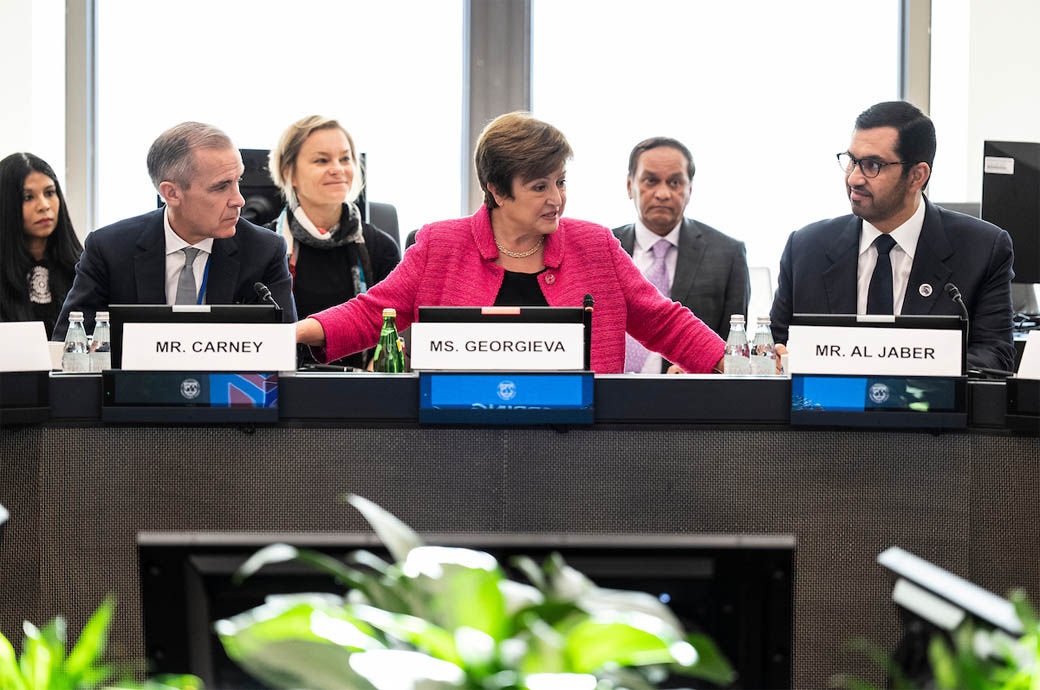

Capital is among the most important enablers of climate action, but not enough is getting to the people and places that need it most, IMF managing director Kristalina Georgieva, COP28 president-designate Sultan Al Jaber and Mark Carney, UN special envoy for climate action and finance and co-chair of the Glasgow Financial Alliance for Net Zero (GFANZ), said in a joint statement after the roundtable, which was co-chaired by the three.
Participants at the roundtable included representatives from governments, international financial institutions, development banks, philanthropic organisations and private financial institutions committed to net zero.
Climate change is one of the most critical macroeconomic and financial policy challenges that IMF members face in coming decades, their statement said.
That includes substantially more concessional finance that can lower risk and drive private sector finance more efficiently to emerging and developing countries.
It also requires that both the public and private sectors finance all components of the energy transition, including both the scaling of clean energy and the managed phaseout of fossil fuels on an accelerated time frame, the three top leaders said.
To achieve this objective, all countries need robust climate policies that accelerate the green transition, and stronger mechanisms to promote cooperation and risk-sharing among stakeholders, they said.
Participants identified areas of work within their respective mandates to be accelerated on the road to COP28, including: making the investment environment more conducive to climate finance; identifying specific obstacles that impede private sector climate finance; proposing reforms to help strengthen countries’ macroeconomic and balance of payments stability by reducing risks associated with climate change; and using innovative financing instruments to scale up private investment in emerging and developing economies.
Fibre2Fashion News Desk (DS)